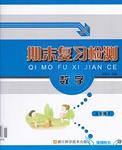
D
He was 11 years old and went fishing every chance he got from the dock at his family's cabin on an island in the middle of a New Hampshire lake.
On the day before the bass season opened, he and his father were fishing early in the evening, catching sunfish and perch(鲈鱼)with worms. Then he tied on a small silver lure(鱼饵)and practiced casting. The lure struck the water and caused colored ripples in the sunset, then silver ripples as the moon rose over the lake.
When his pole doubled over, he knew something huge was on the other end. His father watched with admiration as the boy skillfully worked the fish alongside the dock.
Finally, he very gingerly lifted the exhausted fish from the water. It was the largest one he had ever seen, but it was a bass. The boy and his father looked at the handsome fish, gills playing back and forth in the moonlight. The father lit a match and looked at his watch. It was 10 P.M.--- two hours before the season opened. He looked at the fish, then at the boy.
"You'll have to put it back, son," he said.
"Dad!" cried the boy.
"There will be other fish," said his father.
"Not as big as this one," cried the boy.
He looked around the lake. No other fishermen or boats were anywhere around in the moonlight. He looked again at his father. Even though no one had seen them, nor could anyone ever know what time he caught the fish, the boy could tell by the clarity of his father's voice that the decision was not negotiable. He slowly worked the hook out of the lip of the huge bass and lowered it into the black water.
The creature swished its powerful body and disappeared. The boy suspected that he would never again see such a great fish.
That was 34 years ago. Today, the boy is a successful architect in New York City. His father's cabin is still there on the island in the middle of the lake. He takes his own son and daughters fishing from the same dock.
He was right. He has never again caught such a magnificent fish as the one he landed that night long ago. But he does see that same fish---again and again---every time he comes up against a question of ethics(道德规范).
66. Why did the father ask his son to put the perch back?
A. Because the father disliked the perch. B. Because the father was afraid of being fined.
C. Because the ethics must be observed.
D. Because the son was more experience in fishing than his father.
67. The underlined word “negotiable” in the passage refers to _________.
A. reasonable B. transferable C. acceptable D. reliable
68. When does the architect (the father’s son) think of that perch put back?
A. When he takes his own son and daughters fishing from the same dock.
B. When he builds many famous buildings.
C. When he pays a visit to his old father.
D. When he faces some problems about ethics.
69. Which word can not be used to describe the boy’s father?
A. honest B. noble-minded C. caring D. generous
70. From the passage, we can learn _________.
A. how we do the right thing and are strengthened
B. how we have a chance to beat the system and take it
C. how we master some skills of going fishing
D. how we understand our parents’ words is very important
 品学双优卷系列答案
品学双优卷系列答案 小学期末冲刺100分系列答案
小学期末冲刺100分系列答案 期末复习检测系列答案
期末复习检测系列答案 超能学典单元期中期末专题冲刺100分系列答案
超能学典单元期中期末专题冲刺100分系列答案科目:高中英语 来源:英语教研室 题型:050
A cat then? Usually if you disturbed a cat, it ran off and jumped, and you heard or noticed something else. By doing a lot of night work, you learned to notice these things, but now all riders noticed was the silence which had followed the rustling sound. So he acted cautiously. He did not flash his torch about the houses near the comer but walked on, and, a little way from the spot where he had heard the sound, stopped and bent his head, as if he was lighting a cigarette. A policeman who stopped to light a cigarette seemed the most unsuspicious policeman in the world.
There was still no sound. There were bushes in the garden of the house where Rider had first heard it and he knew that a man could hide there out of sight. But if he went back, it would ware any such man. So instead he stood and shone his torch at the window nearest him, and as if he had noticed something unusual, he walked towards it and opened the wooden gate, which made no sound at all. He reached the entrance and shone the torch on the keyhole of the front door and as he did so, the rustle came again, this time much more softly. He looked round quickly.
1. What was Constable Rider doing on this very cold evening?
A. He was looking for anything out of the ordinary.
B. He was looking for something that had been lost.
C. He was being careful not to disturb people.
D. He was being careless in carrying on these duties.
2. When he heard the rustling sound, he
A. thought that it was probably caused by some animal
B. knew that he had disturbed a cat
C. thought that it was caused by the wind
D. realized that he had turned a comer
3. As he then heard no more sounds, Rider decided
A. that he had been mistaken, and walked on
B. that he might as well have a cigarette
C. to flash his lamp on a window near the comer
D. not to show that he had noticed anything
4. Why did Constable Rider not go right back to the house on the comer?
A. He had seen a man hiding there.
B. He didn't want to use his torch.
C. It would show that he had noticed something.
D. There was still no sound from the garden.
查看答案和解析>>
科目:高中英语 来源:英语教研室 题型:054
完形填空
All kinds of people came in to have their shoes shined. Most folks were friendly. But this man was different.
“How much do you make a week, boy?”he asked me. I felt he was __1__ at me.
He kept giving a sharp __2__ around every now and then. All the time I kept __3__ where I'd seen his face. Suddenly I knew. I'd seen his __4__ in the post office many times. He was the big robber: __5__ by the police in three states!
“You know, ”he was saying,“it's imagination people __6__. You'll never get anywhere as a shoeshine boy.”
I kept brushing on his shoes as __7__ as I could. The sooner I finished, the better. He said,“When I was sixteen, I had __8__ $ 2 500 of my own.”
That reminded me of something. Was it $ 2 500 or $ 5 000 or $ 25 000? I wasn't __9__. I knew a big reward was __10__ for him.
But what could I do about it? __11__ him with a can of shoe polish(擦亮剂)? A man his __12__ could grind(压碎)me into the floor. If only someone would come in! He kept talking away(喋喋不休).“Along with __13__, it takes courage. The courage to take a chance. Start something on a shoestring(鞋带).”
Suddenly I saw Officer Dailey __14__ across the street. Then, real fast, I began tightening the man's shoestrings.
The policeman was at the window when I cried out,“Officer Dailey, __15__! This man's a robber.”
“__16__,”the man shouted angrily. He started to jump off the stand. But he didn't go the __17__ he planned. He fell flat on his face and knocked himself out cold.
“That was __18__ clever of you,”the officer said. “You'll get a reward of $ 7 500 for him.”
“Well, it really wasn't my __19__,”I said.“It was his. He told me that __20__ you had courage and imagination, you could start something big on a shoestring.”
|
(1)A.staring |
B.glaring |
C.laughing |
D.pointing |
|
(2)A.look |
B.walk |
C.word |
D.tongue |
|
(3)A.considering |
B.remembering |
C.caring |
D.wondering |
|
(4)A.notice |
B.picture |
C.mail |
D.warning |
|
(5)A.wanted |
B.searched |
C.caught |
D.shown |
|
(6)A.respect |
B.treasure |
C.lack |
D.wish |
|
(7)A.carefully |
B.showly |
C.well |
D.fast |
|
(8)A.made |
B.stolen |
C.borrowed |
D.gathered |
|
(9)A.curious |
B.sure |
C.interested |
D.clear |
|
(10)A.afforded |
B.offered |
C.suggested |
D.received |
|
(11)A.Injure |
B.Warn |
C.Hit |
D.Avoid |
|
(12)A.size |
B.age |
C.height |
D.kind |
|
(13)A.money |
B.support |
C.cleverness |
D.imagination |
|
(14)A.wandering |
B.leaving |
C.coming |
D.speeding |
|
(15)A.help |
B.danger |
C.stop |
D.attention |
|
(16)A.Mind you |
B.Shut up |
C.Hurry up |
D.Hands up |
|
(17)A.method |
B.position |
C.manner |
D.way |
|
(18)A.pretty |
B.much |
C.very much |
D.too much |
|
(19)A.business |
B.idea |
C.reward |
D.praise |
|
(20)A.unless |
B.that |
C.whether |
D.if |
查看答案和解析>>
科目:高中英语 来源:2013届度河北省高二上学期一调考试英语题 题型:阅读理解
As one comes to some crossroads, he or she sees a sign which says that drivers have to stop when they come to the main road ahead. At other crossroads, drivers have to go slow, but they do not actually have to stop unless, of course, there is something coming along the main road; and at still others, they do not have either to stop or to go slow, because they are themselves on the main road.
Mr. Williams, who was always a very careful driver, was driving home from work one evening when he came to a crossroad. It had a “SLOW” sign. He slowed down when he came to the main road, looked both ways to see that nothing was coming, and then drove across without stopping completely.
At once he heard a police whistle, so he pulled into the side of the road and stopped. A policeman walked over to him with a notebook and a pen in his hand and said, “You didn’t stop at that crossing.”
“But the sign there doesn't say ‘STOP’.” answered Mr. Williams, “It just says ‘SLOW’, and I did go slow.”
The policeman looked around him, and a look of surprise came over his face. Then he put his notebook and pen away, scratched his head and said, “Well, I’m in the wrong street!”
1.When he was stopped by a policeman, he ____.
A. was driving at a high speed B. was driving onto the main road
C. was going to stop his car D. was pulled into the crossroad
2.Though slowly, Mr. Williams continued driving at the crossing because________ .
A. he saw a “STOP” sign in the opposite street
B. he paid no attention to the traffic rules
C. he didn't have to stop
D. he was eager to get home
3.Looking round Mr. Williams, the policeman was surprised because__________ .
A. he met a mad man
B. he realized that he himself was mistaken
C. Mr. Williams dared to speak to him like that
D. Mr. Williams would not apologize to him
4.What does “scratch” in the last paragraph mean?
A. to rub the skin of (the head) for uncertainty
B. to strike (the head ) for regret
C. to nodded for sure
D. to look back to search for something
查看答案和解析>>
科目:高中英语 来源:2006年高考试题(山东卷)解析版 题型:阅读理解
November not only marks the publication of Toni Morrison’s eagerly anticipated(期待) eighth novel, Love, but it is also the tenth anniversary of her Nobel Prize for Literature. Morrison is the first black woman to receive a Nobel, and so honored before her in literature are only two black men:Wole Soyinka, the Nigerian playwright, poet and novelist, in 1986; and Derek Walcott, the Caribbean-born poet, in 1992. But Morrison is also the first and only American-born Nobel prizewinner for literature since 1962, the year novelist John steinbeck received the award.
Like Song of Solomon, Love is a multigenerational story, revealing the personal and communal legacy( 遗产) of an outstanding black family. As Morrison scholars will tell you, Love is the third volume of a literary master’s trilogy(三部曲)investigating the many complexities of love. This trilogy began with Beloved(1988), which deals with a black mother’s love under slavery and in freedom. Jazzy(1993), the second volume, tells a story of romantic love in 1920s Harlem. This latest novel looks back from the 1970s to the 1940s and 50s.
The emotional center of Love is Bill Cosey, the former owner and host of the shabby Cosey’s Hotel and Resort in Silk, North Carolina, described in the novel as “the best and best-known vacation sport for colored folk on the East Coast.” We get to know Cosey through the memories of five women who survive and love him: his granddaughter, his widow, two former employees, and a homeless young girl.
The latest novel, Love, had been described in the promotional material from her publisher as “Morrison’s most accessible work since Song of Solomon.” This comparison to her third novel, published in 1977, was an effective selling point.
1.What would be the best title for the text?
A. Toni Morrison’s latest novels
B. Toni Morrison and her trilogy
C. Toni Morrison and her novel Love
D. Toni Morrison, the Nobel prizewinner
2.What can we learn about John Steinbeck?
A. He was a black writer.
B. He was born in America.
C. He received the Nobel Prize after Morrison
D. He was the first American novelist to win a Nobel
3.The similarity between Love and Song of Solomon is that they both _____.
A. belong to the same trilogy together with Beloved
B. concern families of more than one generation
C. deal with life of blacks under slavery
D. investigate life in 1920s Harlem
4.The novel Love mainly describes ______.
A. the best-known vacation spot for blacks
B. the life of an outstanding black family under slavery
C. the miserable experience of the five women in Harlem
D. the memories of five women about Bill Cosey
查看答案和解析>>
科目:高中英语 来源:2009年高考试题(湖南卷)解析版 题型:阅读理解
Eddie McKay, a once-forgotten pilot, is a subject of great interest to a group of history students in Canada.
It all started when Graham Broad, a professor at the University of Western Ontario, found McKay’s name in a footnote in a book about university history. McKay was included in a list of university alumni (校友) who had served during the First World War, but his name was unfamiliar to Broad, a specialist in military history. Out of curiosity, Broad spent hours at the local archives (档案馆) in a fruitless search for information on McKay. Tired and discouraged, he finally gave up. On his way out, Broad’s glance happened to fall on an exhibiting case showing some old newspapers. His eye was drawn to an old picture of a young man in a rugby uniform. As he read the words beside the picture, he experienced a thrilling realization. “After looking for him all day, there he was, staring up at me out of the exhibiting case,” said Broad. Excited by the find, Broad asked his students to continue his search. They combed old newspapers and other materials for clues. Gradually, a picture came into view.
Captain Alfred Edwin McKay joined the British Royal Flying Corps in 1916. He downed ten enemy planes, outlived his entire squadron (中队) as a WWI flyer, spent some time as a flying instructor in England, then returned to the front, where he was eventually shot down over Belgium and killed in December 1917. But there’s more to his story. “For a brief time in 1916 he was probably the most famous pilot in the world,” says Broad. “He was credited with downing Oswald Boelcke, the most famous German pilot at the time.” Yet, in a letter home, McKay refused to take credit, saying that Boelcke had actually crashed into another German plane.
McKay’s war records were destroyed during a World War II air bombing on London — an explanation for why he was all but forgotten.
But now, thanks to the efforts of Broad and his students, a marker in McKay’s memory was placed on the university grounds in November 2007. “I found my eyes filling with tears as I read the word ‘deceased’ (阵亡) next to his name,” said Corey Everrett, a student who found a picture of Mckay in his uniform. “This was such a simple example of the fact that he had been a student just like us, but instead of finishing his time at Western, he chose to fight and die for his country.”
1.What made Professor Broad continue his search for more information on McKay?
A. A uniform of McKay. B. A footnote about McKay.
C. A book on McKay. D. A picture of McKay.
2.What did the students find out about McKay?
A. He trained pilots for some time.
B. He lived longer than other pilots.
C. He died in the Second World War.
D. He was downed by the pilot Boelcke.
3.McKay’s flying documents were destroyed in .
A. Belgium B. Germany C. Canada D. England
4.We can learn from the last paragraph that McKay .
A. preferred fight to his study
B. went to war before graduation
C. left a picture for Corey Everrett
D. set an example for his fellow students
5.What is the text mainly about?
A. The research into war history.
B. The finding of a forgotten hero.
C. The pilots of the two world wars.
D. The importance of military studies.
查看答案和解析>>
湖北省互联网违法和不良信息举报平台 | 网上有害信息举报专区 | 电信诈骗举报专区 | 涉历史虚无主义有害信息举报专区 | 涉企侵权举报专区
违法和不良信息举报电话:027-86699610 举报邮箱:58377363@163.com